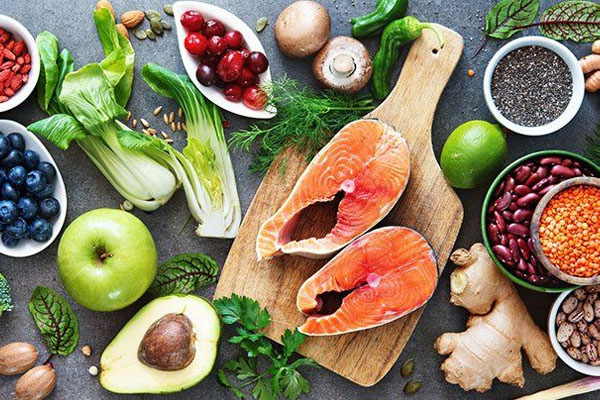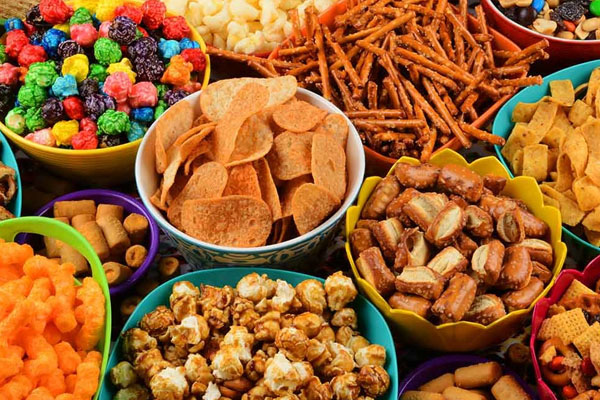How to Lower Blood Pressure Through Food & Lifestyle
Mediterranean-style diet – traditionally, this diet includes plenty of fresh vegetables, therefore high fiber, moderate protein intake mostly fish (Omega-3 rich), some grains, olives and olive oil, and fruits are eaten seasonally.
Best Foods to Maintain or Lower Blood Pressure:
- High fiber foods: Unprocessed foods high in fiber such as vegetables, fruits and seeds should be the basis of any healthy diet. Eat foods high in healthy fiber help stabilize your blood pressure
- Low sodium foods: Excess salt consumption raises blood pressure. Limit your consumption to no more than 1,500–2,000 mg daily.
- High potassium foods: Potassium counteracts the effects of sodium and helps lower blood pressure. Include foods like melons, coconut water, avocados and bananas.
- Omega-3 rich foods: Omega-rich foods flax seed oil wild caught salmon, chia and flax seeds reduce inflammation.
Specific Foods that Reduce Blood Pressure:
- Dark chocolate – Dark chocolate contains at least 200 milligrams of cocoa phenols, which can reduce blood pressure. At least 70% cacao.
- Garlic – Garlic and garlic supplements can help lower blood pressure and relax smooth muscles. Garlic helps to thin the blood, prevent the blockage in blood vessels, and therefore lower blood pressure.
- Spinach – Spinach is rich in magnesium and folate, which can help prevent high blood pressure and cardiovascular disease.
- Sunflower Seeds – Rich in potassium, magnesium and healthy plant fats. Sunflower seeds can help reduce cholesterol levels, open up blood vessels and promote healthy blood pressure.
- Bananas – Bananas are rich in potassium and fiber.
- Tomatoes – Cooked tomatoes are loaded with calcium, potassium, vitamins A, C, and E and lycopene. Compounds in tomatoes can lower cholesterol buildup in blood vessels and combat the development of hypertension in a variety of ways. Lycopene in tomato’s is activated by heat, add cooked tomatoes to your food program.
- Broccoli – Broccoli and cruciferous vegetables have been found to have beneficial health effects. They have high amounts of potassium and chromium that help regulate blood sugar levels and weight, both related to high blood pressure.
- Melon – Eat melons that are rich in potassium, such as cantaloupe and watermelon which are especially rich sources.
- Beets – Rich in Nitric Oxide, generates the endothelial derived relaxing factor, which relaxes blood vessels, and iron producing nutrients.
Supplements that Can Help Lower Blood Pressure
- Garlic
- Vitamin C
- Nitric Oxide
- Omega-3 supplement
- Chinese Herbal Formula – Jiang Ya Ping Pian
- Probiotics
- Vitamin D3 with Vitamin K2
- CoQ10
- Cranberry and Pomegranate juices
- L-Arginine
- Potassium
- Hawthorn berries
- Magnesium
- Chinese herbal Dan Shen Yin
- Vitamin B6
- Dr. Christopher’s Blood Circulation Herbal Formula
- Chinese Herbal Formula – Hypertension Repressing Tablets
Foods to Avoid to Maintain Healthy Blood Pressure
- High sodium foods: Sodium raises blood pressure; avoid high sodium processed foods, pickles, olives or canned foods.
- Trans fats and Omega-6 fats: These fats increase inflammation and blood pressure and are found in packaged foods and conventional meats.
- Sugar: High sugar consumption is connected to high blood pressure.
- Caffeine: Too much caffeine can cause an increase in blood pressure.
- Alcohol: Narrows arteries and can increase blood pressure.
Lifestyle Tips to Lower Blood Pressure
- Regular exercise and diet play a large role, reduce stress, better sleep, more free-time and fun, relaxation techniques such as deep breathing, yoga, journaling or art therapy, surround yourself with encouraging friends and exercising on a daily basis.

